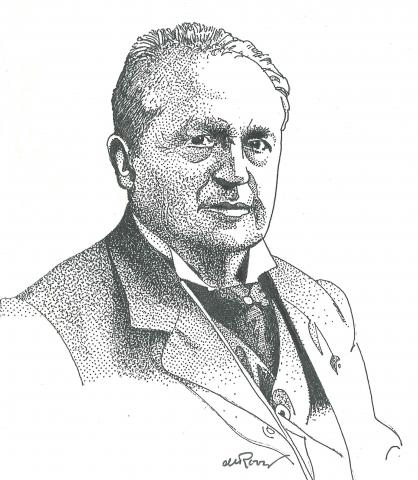A revised and updated version of
Abraham Kuyper: An Annotated Bibliography 1857-2010 by Tjitze Kuipers (2011)
You can buy a printed edition of this book on the site of the publisher.
1901
The June elections for the Second Chamber (see 1901.07) resulted in a parliamentary majority for the Christian political parties (fifty-eight of one hundred seats). Kuyper was charged with forming the new government. He presented the new cabinet on July 30, 1901 and was appointed as a minister on July 31, 1901. His first act as minister of the interior in the Second Chamber took place on September 24, 1901, when he spoke during the debate (pp. 54–64) about the draft reply of the Second Chamber to the queen’s address from the throne at the opening of Parliament on September 17, 1901. (The queen’s address contained striking references to the Netherlands as a “Christian power” and a “Christian nation.”) Kuyper then addressed a number of changes to the national budget for 1901 (pp. 132–134). The Second Chamber discussed the national budget for 1902 until the Christmas recess; Kuyper’s contribution is noted in passing on pages 320–590. Kuyper made a distinct impression from the outset. Among his comments are the following: “I do not stand here as a theologian, but as a statesman. … From the history of Cromwell I have gained a frightful fear of a Barebone’s Parliament. … The great truth is that all politics are ruled either by faith or by unbelief” (pp. 320–325, with footnotes). Kuyper also spoke about the budget and education (pp. 485–551). Among other things, the matter of coeducation was briefly mentioned (p. 513).
Shortly after entering office, Kuyper became the first prime minister of the Netherlands on October 23, 1901. He had a hand in changing the code of order for the cabinet that made this possible. Rather than having a rotating chair in the cabinet, the minister who had been given the task of forming the new government became the settled chairman. This change was not incorporated into the constitution until 1983.

